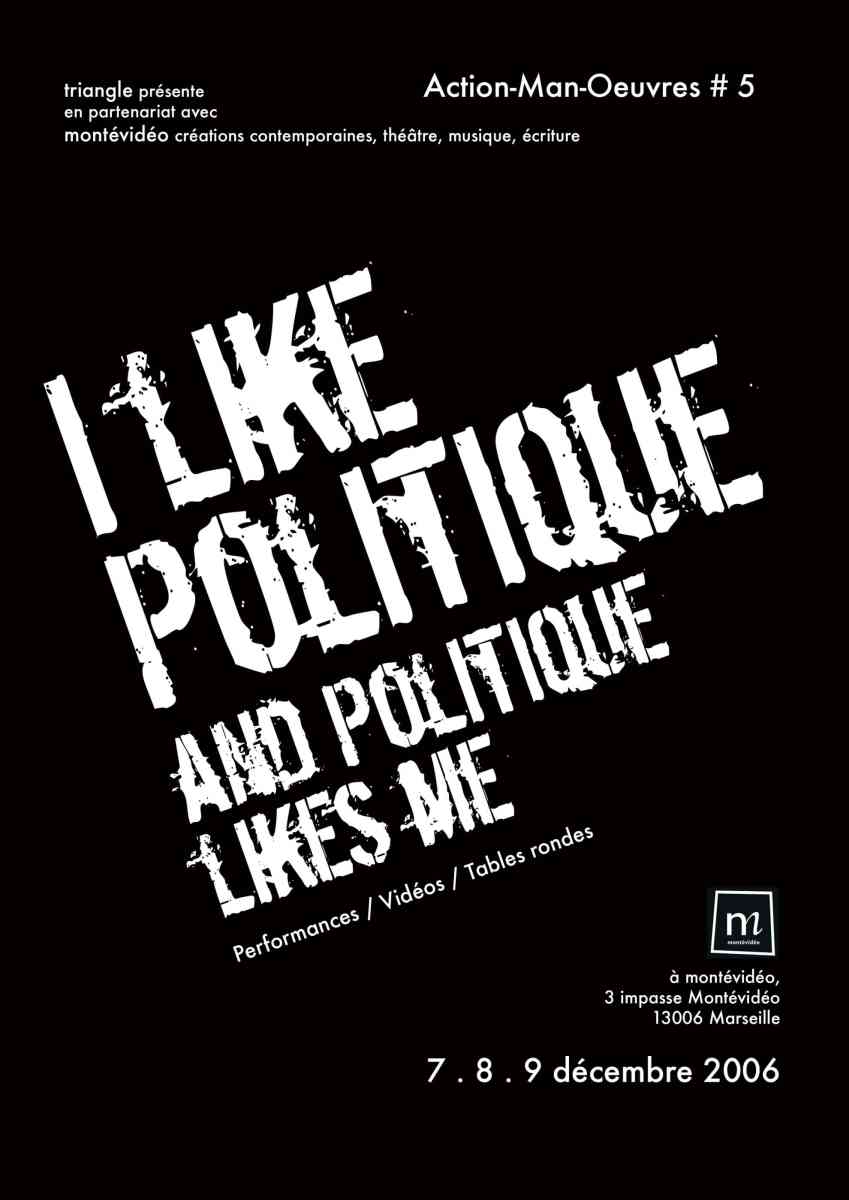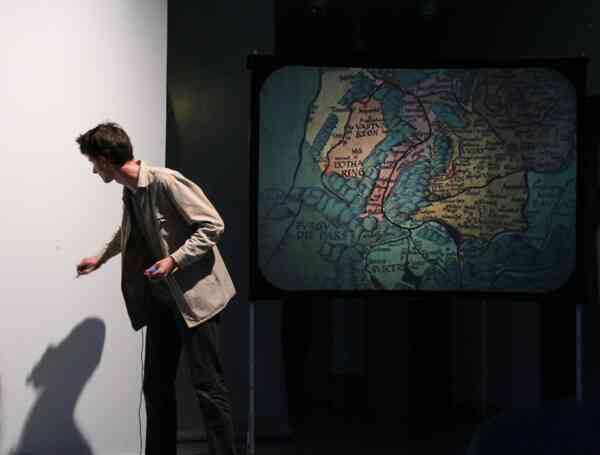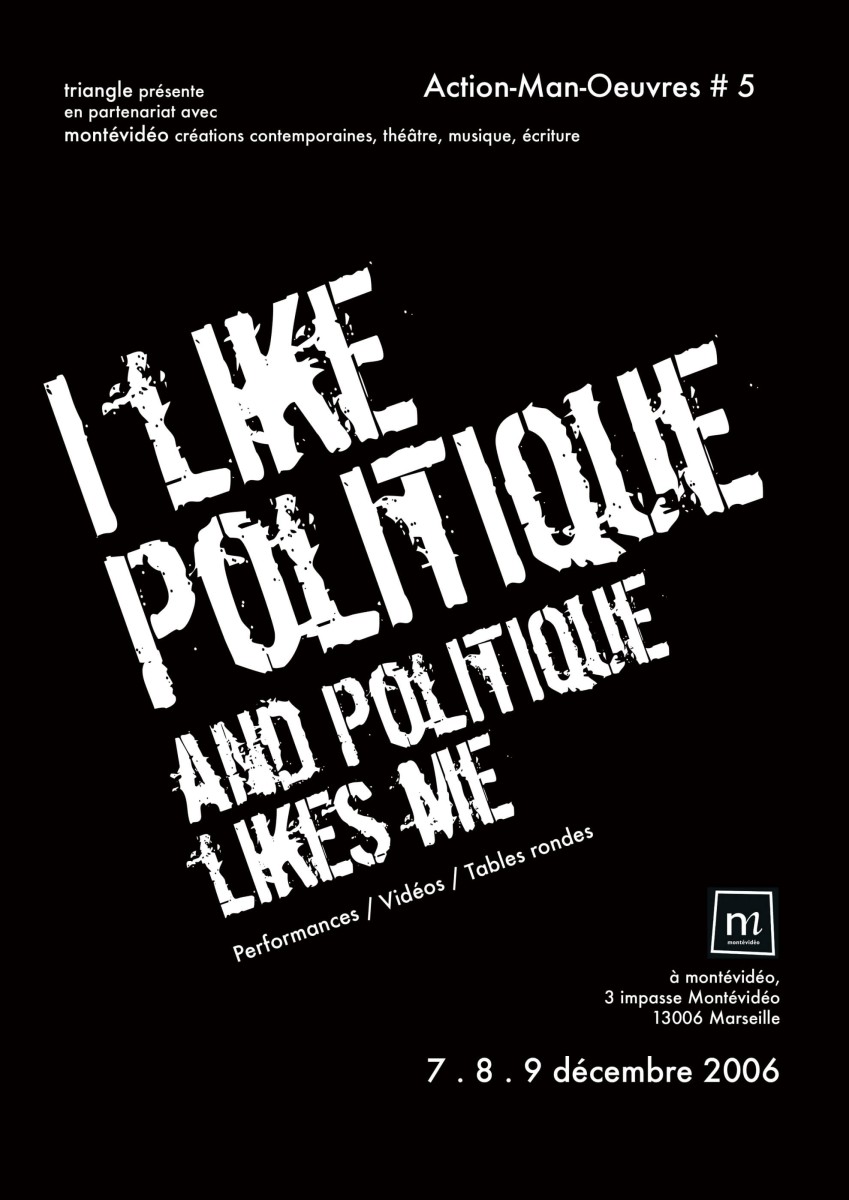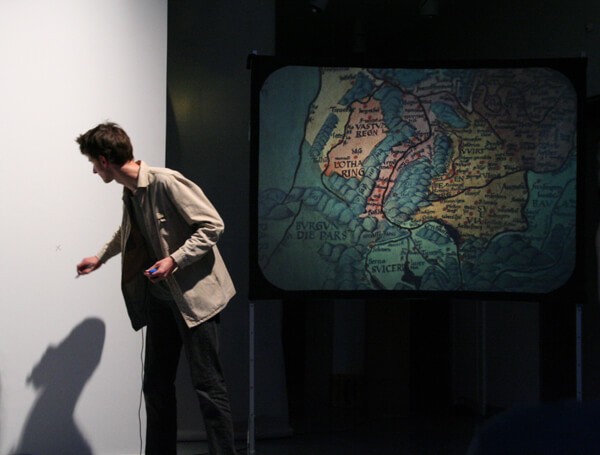Festival Action-Man-Oeuvre #5
A partnership between Triangle France and montévidéo.
December 7, 8 and 9, 2006
montévidéo, 3 impasse Montévidéo, 13006 Marseille
Since 1997, Triangle has explored the field of performance with its biennial events “Action-Man-Œuvres”, which present artists working at the intersection of visual arts, dance, theater, and sound poetry. Aiming to showcase the deeply unclassifiable, eclectic, and transdisciplinary nature of performance in each edition, these evenings did not focus on a specific theme or field of reflection, but gathered under this generic term unique energies and singular proposals.
For the first time, in 2006, Triangle set a specific angle of attack and, in partnership with Montévidéo, presented I like Politique and Politique likes me, a program combining performances, videos, and roundtables that sought, through these various approaches, to address the question of the artist’s body within the political and social realm. Historically, performance developed in the 1960s as an explosive and fleeting form that artists used to respond to the profound social, cultural, and political upheavals of the time. Against the backdrop of the Vietnam War, sexual emancipation, and the fight for civil rights, performers developed a “combat art” as the most radical form of artistic creation, irrevocably disrupting the traditional course of art history.
2007: Circulez, y’a rien à voir!
With presidential elections in France just a few months away, it seemed interesting to invest in and re-contextualize the political question in contemporary artistic creation. How do artists engage with politics? What kind of perspective—ironic, provocative, transgressive, disillusioned, or indifferent—do artists have on our society? A society marked by widespread tension, amidst riots in the suburbs, collective paranoia, security overreach, and the globalization of the economy. The artists of the 1960s responded to the tremors of their era with radical, grotesque, sometimes terrifying actions, in a constant desire for transgression and provocation. Is a transgressive discourse still possible today? It seems that contemporary artists engage little with politics, or at least address it in a diverted way. If artists are indeed the reflection of their times, does this mean that electoral abstention finds an unsettling echo within the art world itself? Or, more likely, has the end of grand ideologies and the ongoing mutation of capitalism—one that absorbs and strengthens the critiques made against it—led artists to explore new strategies?
We felt it was relevant to address the political question through a performance event rather than an exhibition because historically, performance has been a form that challenges and transgresses the boundaries between everyday life and art, public and private, as well as between disciplines (dance, sound, theater), disregarding all rules and classifications. Art and politics… a slippery ground that subtly raises the question of the complex and ambiguous relationship between these two terms: by trying too hard to deliver a political message, do some artists not end up producing works that are both aesthetically poor and politically consensual, skillfully or not maneuvering a “good guy vs. bad guy” dichotomy (poverty is bad, capitalism is too…)?
Developing hypotheses, exploring alternative paths, but also confronting head-on the full potential of this ambivalence, was undoubtedly one of the main challenges of this program. The artists invited to I like Politique and Politique likes me come from very diverse backgrounds (Germany, Cuba, Brazil, France, Great Britain, Peru, the Netherlands, South Africa), but they all share a strong commitment to what constitutes our reality. Developing strategies such as infiltration, hacking, or subversion, they carry out either direct or diverted critiques of the forces at play.
Associated with a video program and roundtables, the performances proposed for I like Politique and Politique likes me offer an insight into all these questions, creating, we hope, both the conditions for debate and for aesthetic emotion.
Text by Sandra Patron, Director of Triangle France



